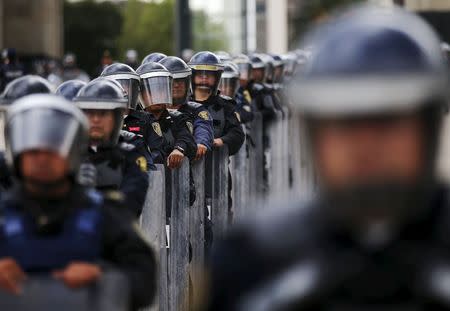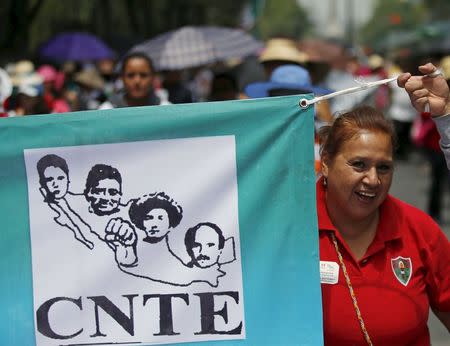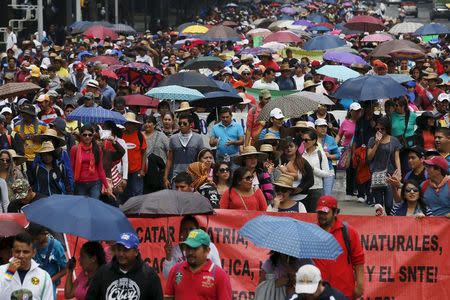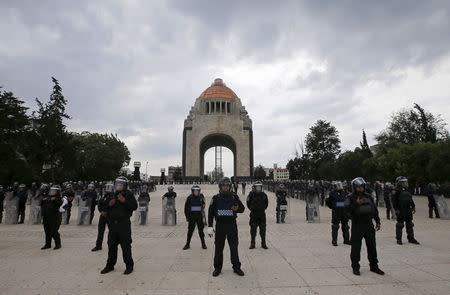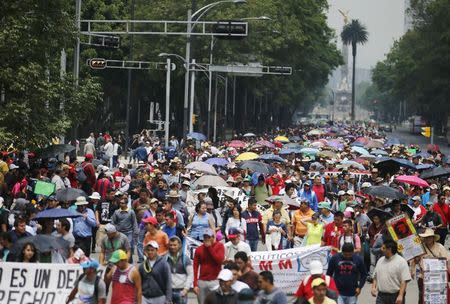Mexican teachers protest education reform after government weakens stance
By Max De Haldevang MEXICO CITY (Reuters) - Thousands of Mexican teachers protested on the streets of Mexico City on Monday against a crucial part of President Enrique Pena Nieto's education reform, sensing that government support for it was crumbling. On Friday, the Education Ministry said it would suspend the planned teacher evaluations opposed by militant teaching unions in Mexico, which fear it will curb their power. The decision followed months of agitation from union members, and sparked condemnation from opposition lawmakers and supporters of the law, who said it would gut the reform. Buoyed by the retreat, 10,000 teachers and opponents of what Pena Nieto has argued is his most important piece of legislation massed on the Paseo de la Reforma, one of the capital's main boulevards, in an effort to kill off evaluations altogether. "The evaluations are punitive," said Juan Carlos Lopez, 42, a primary school teacher. "It's a justification to fire teachers on a massive scale." Supporters of the reform said it was urgently needed to improve flagging educational standards and root out corruption in teaching unions. Its critics argue that many poorer teachers lack the financial support to meet required standards. Opposition to education reform has been strongest among teachers in the southwest of Mexico, where some surrounded a facility of state oil company Pemex in Oaxaca state with cargo trucks and burnt ballot papers in state capital Oaxaca City. Some protesters have threatened to interfere with nationwide elections due to be held next Sunday, and opposition lawmakers accused the government of sacrificing the reform to protect the ruling Institutional Revolutionary Party, or PRI. The need for improvement is clear, and only two weeks ago, Pena Nieto hailed the education reform as the one that would "without doubt" have the biggest impact on Mexico's future. In the World Economic Forum's latest annual competitiveness survey, Mexico ranked 118th out of 144 countries in quality of primary education, behind many poorer countries, including Honduras, El Salvador, Bolivia, Bangladesh and Sierra Leone. The government's reasons for suspending the teacher evaluations have not been clearly explained. The Education Ministry said only that it had "new elements to consider" and declined to comment further when contacted on Monday. Its decision had sent out a "terrible message" about the government and was a betrayal of teachers backing reform, said Juan Carlos Romero, head of the Senate education committee and a member of the center-right National Action Party (PAN). "We're going from illusion to disillusionment," he said. "Once you've lost confidence it's very hard to re-establish it." (Writing by Dave Graham; Editing by Richard Chang, Toni Reinhold)

 Yahoo News
Yahoo News 